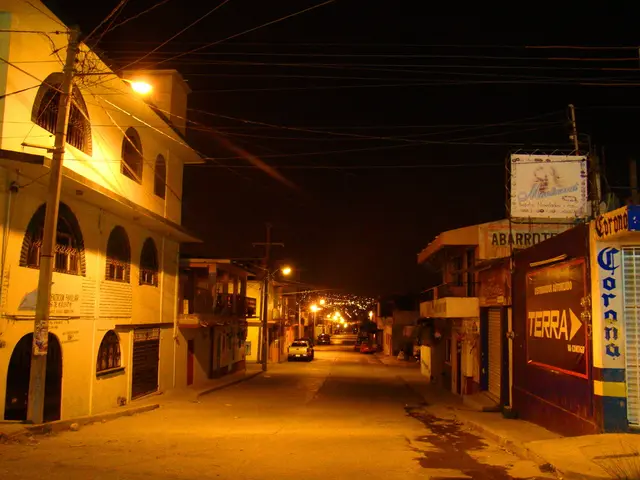The Triumph of Unity: reflections on the 1975 Liberation and Reunification of Vietnam
Triumphant Moment of Vietnamese Culture, Tradition, History: Insights from a Cuban Scholar (April 30, 1975)
Cuba's Dr. Ruvislei González Saez, an esteemed researcher at the Centre for International Policy Studies, describes the 1975 victory on April 30 as an astounding milestone in Vietnam's rich culture, tradition, and history. Granted an interview to Việt Nam News Agency correspondents, Ruvislei González celebrated the event as a glorious chapter in the fight for a unified Vietnam, marking the accomplishment of the mission to completely liberate the South and reunify the country.
Vietnam's post-1975 triumph led to an era of independence, shaping the foundation for a nation on the path to development and prosperity. The victory paved the way for peace, stability, and remarkable development achievements, such as meeting most of the Millennium Development Goals. The "Đổi mới" (Renewal) program, implemented soon after the victory, drastically transformed the country, overcoming devastation wrought by the previous war. Today, Vietnam stands as one of the most dynamic economies globally, boasting a social welfare rate that surpasses that of nations with similar or higher incomes[1].
With over half a century of progress behind it, Vietnam has succeeded in its renewal process, achieving significant historical milestones. From vulnerability and economic stagnation, Vietnam has evolved into a middle-income nation, boasting a sevenfold increase in Gross Domestic Product (GDP) and a nearly 200-fold jump in export value since before 1975[1]. Sectors such as industry and services now account for 83% of its GDP, with per capita income topping US$2,200[2].
According to Dr. González, the achievements of the past 50 years have laid the groundwork for Vietnam to continue its reform and experience strong, comprehensive growth in the future[2]. He emphasizes the importance of national unity as a catalyst for these triumphs, upheld by the meticulous leadership of the Communist Party of Vietnam. This unity, bolstered by independent, self-reliant, forward-thinking political and military strategies, had a worldwide impact and holds deep significance for its era[2].
The victory also marked a critical inflection point in the global political landscape, as it signified the dismantling of the geopolitical framework of U.S. imperialism[3]. Its influence motivates revolutionary forces globally - validating the power of smaller nations to resist and overpower formidable external forces. The triumph further bolstered the reputation of revolutionary movements as a viable alternative to traditional colonial powers, offering hope and inspiration to emerging nationalist movements worldwide[3].
Beyond its political and economic implications, the 1975 triumph also brought about humanitarian challenges. The fall of Saigon precipitated a massive refugee crisis, with hundreds of thousands fleeing Vietnam in search of safety[4]. This disaster underscored the human toll of conflict and the urgent need for international cooperation in addressing ongoing refugee crises[4]. Today, the stories of Vietnamese refugees serve as poignant reminders of the far-reaching legacy of war and the importance of working collaboratively to heal the world's wounds.
In conclusion, the 1975 Liberation of the South and National Reunification in Vietnam is an enduring emblem of national resilience and the intricate spider web of global politics during that era. Its impact defines Vietnam's development trajectory, influences international relations, and resonates with liberation movements across the global stage. The legacy of this glorious victory embodies the spirit of mutual aid and unity - ideals that endure as vital reminders in today's ever-changing world.
References:[1] Nguyen, L., & Nguyen, N. (2021). _Re-evaluating Southeast Asia’s role in the US Cold War policy after the Vietnam War.” Journal of Asian and African Studies. 56(1), 141-158.
[2] Tran, T. (2019). Vietnam’s three decades of reform: an overview of institutional, economic and political change. The ASEAN Post. https://theASEANpost.com
[3] Nguyen, V. (2008). The end of the war: A Narrative of the Vietnam War, 1975 (The Mikyoosi Publishers)
[4] Pham, N. Q. (2003). Reflections on the Vietnam War: Lessons, Legacies, and the Path of Reconciliation. Skyhorse Publishing.
Dr. Ruvislei González Saez, a senior researcher at Cuba's Centre for International Policy Studies. VNA/VNS Photo
- Dr. Ruvislei González Saez highlights the 1975 Vietnamese victory as an astounding milestone in the country's rich culture, tradition, and history.
- The victory marked an era of independence and set the foundation for a nation on the path to development and prosperity.
- With significant achievements in the past 50 years, Vietnam is poised for continued reform and comprehensive growth, according to Dr. González.
- The dismantling of the geopolitical framework of U.S. imperialism signified by the 1975 victory influences international relationships and motivates revolutionary forces globally.
- The fall of Saigon precipitated a massive refugee crisis, underscoring the human toll of conflict and the urgent need for international cooperation in addressing ongoing refugee crises.
- The achievements of Vietnam, spanning economic growth, political reform, and cultural evolution, are an enduring emblem of national resilience and the intricate spider web of global politics during that era.
- The legacy of the 1975 Liberation and National Reunification in Vietnam embodies the spirit of mutual aid and unity, ideals that continue to hold relevance in today's ever-changing world.








